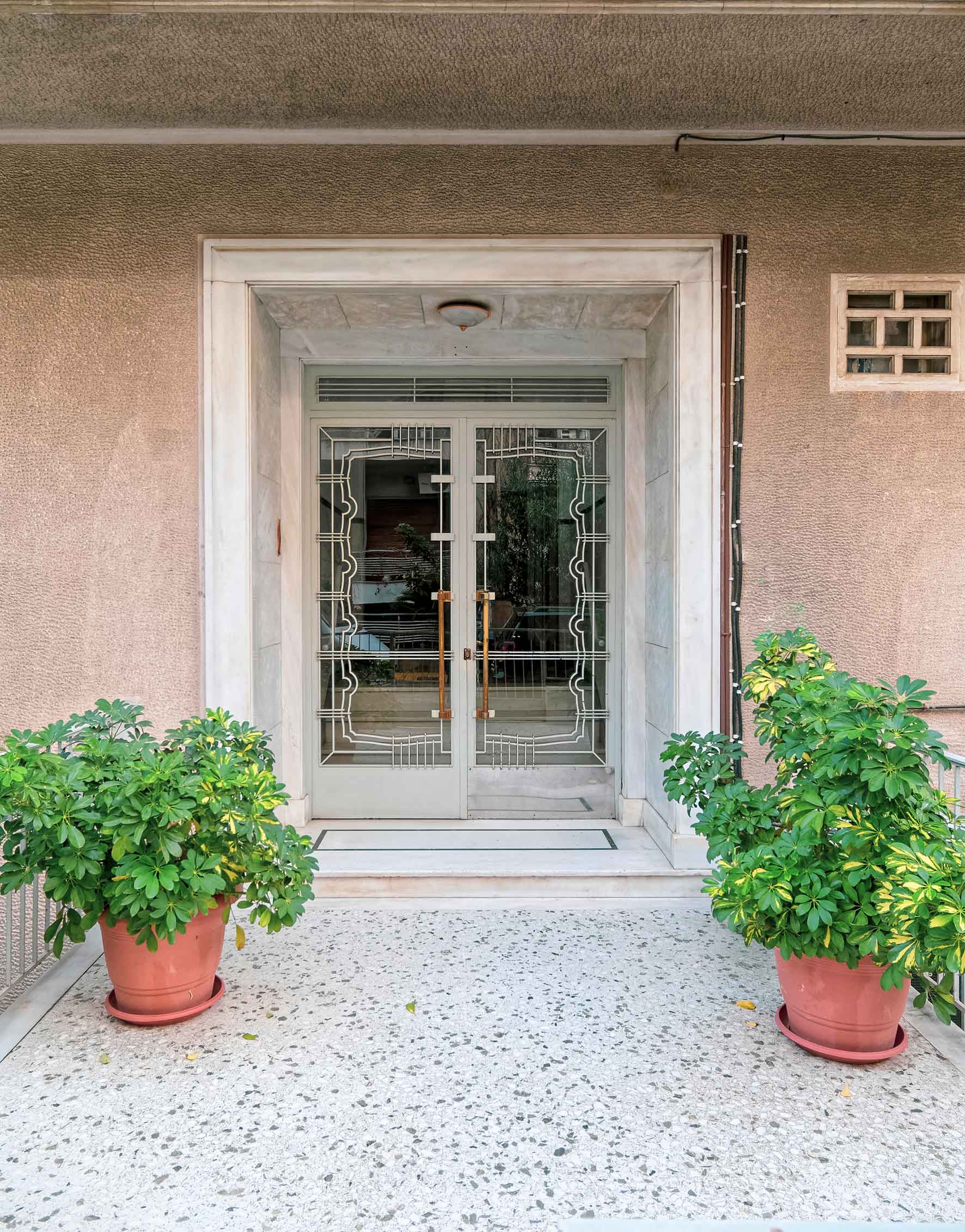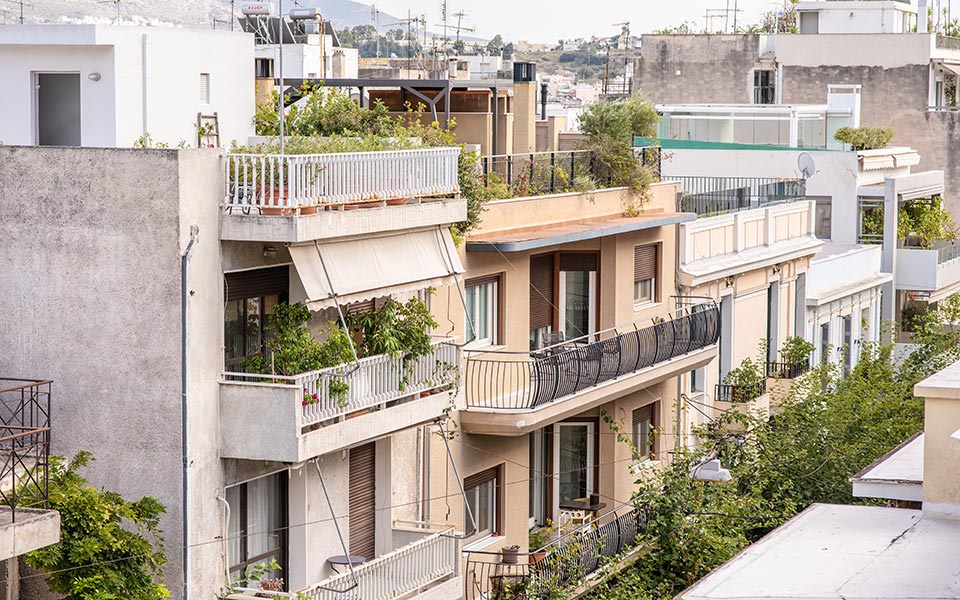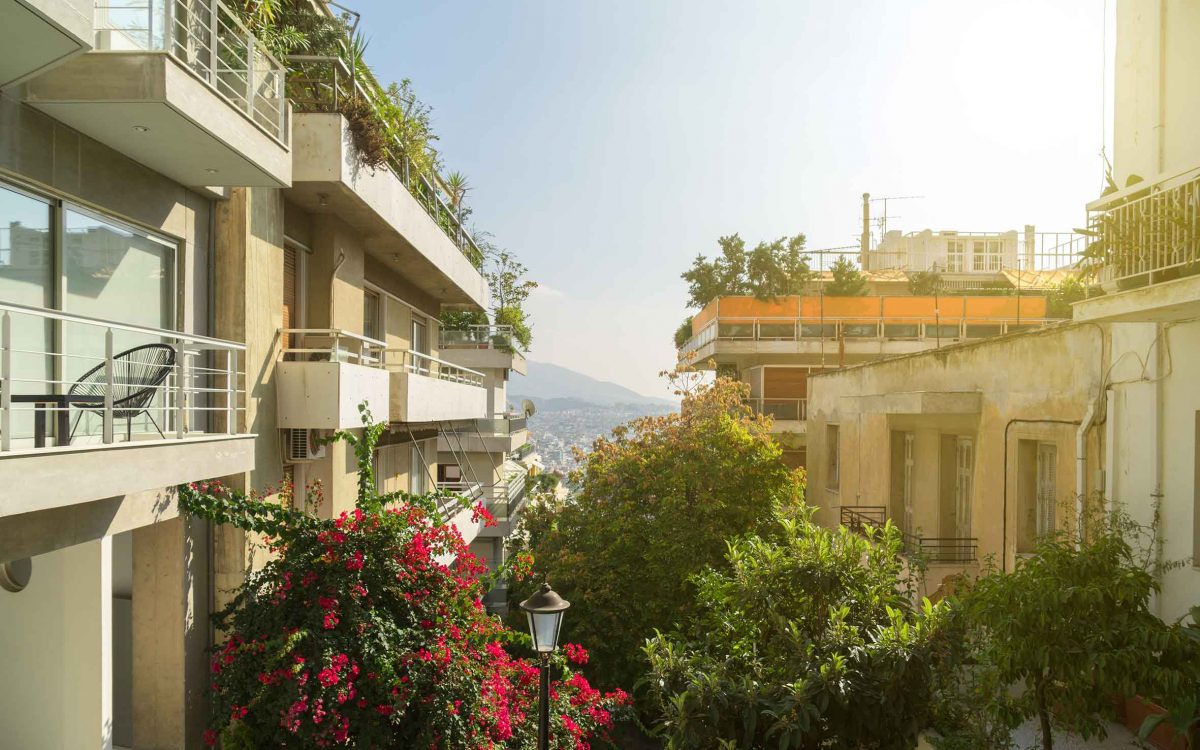The Athenian apartment building is a living organism whose evolution reflects broader social and economic shifts, more recently from the decade-long financial crisis, followed by Athens’ emergence as a popular tourism destination, the advent of short-term leasing, the Golden Visa program and the ensuing influx of foreign capital, before the pandemic brought a pause in – though not a halt to – some fascinating developments.
Thomas Maloutas, a professor of social geography at the Harokopio University’s Department of Geography, is one the experts who has extensively studied the Athenian apartment building “phenomenon.”
“What has changed today is our perception of the whole ‘antiparochi’ affair,” he says, referring to a law adopted 1929 which flourished during the post-war period whereby the owners of houses and land would sign over their asset to a building developer in exchange for a unit or two in the newly built block.
“Most people used to believe that antiparochi was a bad thing for the city, that it destroyed its architectural legacy, that it caused overly built neighborhoods and depressed their value. While this is not entirely untrue, we have come to terms with the fact that this residential stock managed to provide a roof over the heads of a wide range of social levels in a country that had no housing policy. Moreover – and this is something that was acknowledged much later – the way that residential development happened in central Athens did not result in the creation of ghettos, that is areas with exclusively poor populations trapped in a cycle of isolation. The apartment block, this bizarre phenomenon, actually created a socially inclusive space,” says Maloutas.

© Shutterstock

© Shutterstock
New legislation introduced in the mid-1980s banned ground-floor and mezzanine apartments, which also changed the vertical division of the space. Before that, the larger apartments – and the wealthier tenants – tended to be toward the top of the building, with the smaller ones – and less well-off residents – lower down.
“Apartment buildings became more socially homogenous from the mid-80s on. The top floors continued to be more expensive, but they were not aimed at a different social class than the lower floors. The social divide between floors became smaller. What’s more, the tendency for the size of the apartment to be determined by the floor it was on diminished with time,” explains Maloutas.
“Also, Athens is no longer what it was in the 60s: growing in terms of population every day, which resulted in intense demand. Nor does it have empty plots anymore, as most of the city has already been built,” says Maloutas.
“The residential market stagnated during the economic crisis, a development that was due on the one hand to what was happening to us Greeks and, on the other, to the fact that Athens held little investment interest for foreigners. This interest began appearing gradually as the country emerged from the crisis, something that also coincided with the rise of the tourism trend. A new kind of demand was created that was directly linked to the residential market. It is telling that in the period just before the pandemic, three out of four purchases were by foreign buyers and not Greeks,” he explains.
The antiparochi system, meanwhile, basically disappeared over the past decade as the motives – tax and zoning – that had been driving the scheme were abolished.

© Shutterstock
These developments altered the social identity of some apartment buildings, though not radically, according to the expert.
“A chunk of the population moved to the suburbs, starting in the early 1990s. Apartments became undesirable, and many of them gradually began getting new tenants in the form of immigrants. This more or less remained the case until Airbnb came along and altered the equation. People who had found a home in the less desirable parts of apartment buildings came under pressure to vacate. Until the advent of Airbnb, apartment buildings were the bulwark against gentrification because no investor would buy these apartments. But Airbnb gave the owners of these apartment hopes of revenues, meaning that their vulnerable tenants were moved out, though not, of course, to the degree of creating a wave of homelessness,” says Maloutas.
This development, in turn, resulted in an increase in rental rates, which came to 30% in the 2016-17 period. “The pandemic curbed it, but did not stop it, as a large number of apartments did not go back to long-term leases,” he says.
As far as the advent of many apartments and apartment blocks in central Athens being owned by foreigners is concerned, Maloutas says this is a development whose impact on the city will become apparent over the next few years.
“On the one hand, the new owner doesn’t care about the tenant’s social background – many Greek owners did, often in a racist fashion. On the other, housing has become a commodity and the type of ownership has changed in Greece. It remains to be seen how this alters the human geography in apartment buildings and life in Athens’ neighborhoods.”
This article was previously published at ekathimerini.com.












